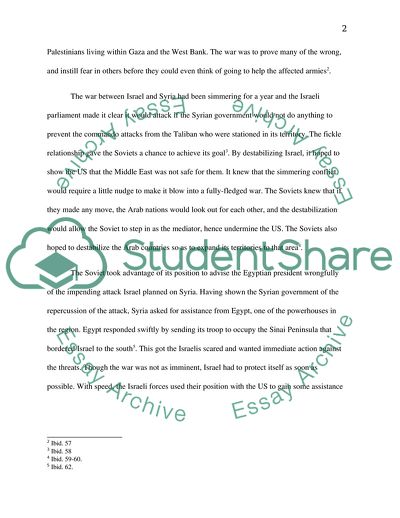Cite this document
(The Six-Day War: Impact in Middle East Essay Example | Topics and Well Written Essays - 1500 words, n.d.)
The Six-Day War: Impact in Middle East Essay Example | Topics and Well Written Essays - 1500 words. https://studentshare.org/history/1875961-20th-century-middle-east-essay-on-what-makes-1967-a-watershed-year-in-the-history-of-the-region
The Six-Day War: Impact in Middle East Essay Example | Topics and Well Written Essays - 1500 words. https://studentshare.org/history/1875961-20th-century-middle-east-essay-on-what-makes-1967-a-watershed-year-in-the-history-of-the-region
(The Six-Day War: Impact in Middle East Essay Example | Topics and Well Written Essays - 1500 Words)
The Six-Day War: Impact in Middle East Essay Example | Topics and Well Written Essays - 1500 Words. https://studentshare.org/history/1875961-20th-century-middle-east-essay-on-what-makes-1967-a-watershed-year-in-the-history-of-the-region.
The Six-Day War: Impact in Middle East Essay Example | Topics and Well Written Essays - 1500 Words. https://studentshare.org/history/1875961-20th-century-middle-east-essay-on-what-makes-1967-a-watershed-year-in-the-history-of-the-region.
“The Six-Day War: Impact in Middle East Essay Example | Topics and Well Written Essays - 1500 Words”. https://studentshare.org/history/1875961-20th-century-middle-east-essay-on-what-makes-1967-a-watershed-year-in-the-history-of-the-region.


